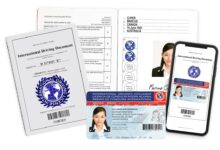Check the Personal Property Securities Register (PPSR)

Ppsr check The Personal Property Securities Register allows lenders and businesses to register their security interests. Secured parties, buyers and other interested parties can search the PPSR to find out if a security interest is registered over the personal property.

The Personal Property Securities Register (PPSR) is an electronic register that allows security interests in personal property to be registered and searched in accordance with the New Zealand Personal Property Securities Act 1999[1] (the Act) and the Australian Personal Property Securities Act 2009.[2]
The New Zealand PPSR is maintained by the New Zealand Companies Office, an agency of the Ministry of Business, Innovation and Employment. The Australian Financial Security Authority (AFSA) is the Australian Government agency responsible for administering the Australian PPS Register.
Contents
Who would use the PPSR?
Financial instutions such as banks and finance companies providing loans where they receive a security interest in an item of personal property.
Businesses who sell personal property on credit, consignment, or on a retention of title arrangement.
Consumers who are about to purchase personal property, such as valuable second goods, to make sure the property is free of a security interest.
Examples of personal property include:
- art
- cars, boats and caravans
- crops and livestock
- inventory
- plant and machinery
- shares
Personal property can also include non-material items such as:
- accounts
- intellectual property
- investment instruments, or
- licences.

What is the PPSR used for?
The register is used to determine priority for secured creditors in the case of debtor default or liquidation.
Secured parties and potential secured parties are able to use it to search for and register security interests in personal property. The PPSR is web based, available in real time and accessible 24 hours a day, 7 days per week.
What is the PPSR?
The PPSR-definition is the official government register of security interests in personal property-definition – these are debts or other obligations that are secured by personal property. It’s an online noticeboard accessible by the general public 24/7. The PPSR-definition started on 30 January 2012 and replaced many state based registers, such as REVS and other vehicle registers and the ASIC-definition Register of Company Charges, to form one national register.
When someone registers a security interest-definition on the PPSR, they are letting the world at large know that they claim to have a security interest[?]-definition over certain personal property. Personal property-definition includes things like cars, company assets, boats, used goods-definition and intellectual property; it doesn’t include land or fixtures.
People can search the PPSR to see if someone has registered a security interest over personal property (which they may want to do before buying property or lending money to someone).
Millions of searches and registrations take place on the PPSR every year.
For more information about using the PPSR, including the fees involved, see Searching the PPSR and Registering on the PPSR.
Who looks after the PPSR?
The operation of the PPSR is overseen and managed by the Registrar of Personal Property Securities. The Registrar is appointed by the Attorney General’s Department. The Registrar’s office sits in a Commonwealth government department called the Australian Financial Security Authority (AFSA)external site. AFSA-definition is an executive agency in the Attorney-General’s portfolio.
The Registrar’s job is to make sure that the PPSR is managed responsibly, made available to use and contains information that is reliable. They can do many things to make sure this happens including making decisions about what can be registered on the PPSR, when the PPSR needs to be made unavailable and investigating misuse of the PPSR. The Registrar can also delegate these powers to others as necessary.
As well as the Registrar’s office, the day-to-day operations of the PPSR are supported by our AFSA[?]-definition Service Centre. If you are unable to do an online PPSR search, they can perform this over the phone for you (at a higher cost). They can also answer your general enquiries if you are unable to find the answer to the information you need on our website.
How does the PPSR work?
The PPSR was created as a result of law that came into operation on 30 January 2012. This law is called the Personal Property Securities Act 2009 (PPS Act).
The PPS Act, (and any other rules, regulations-definition or laws made under it), contains rules about how the PPSR works; essentially to allow registration-definition and search of security interests. It includes things like how registrations are made on the PPSR, what powers the Registrar has to make decisions about the PPSR and how to search the PPSR.
The Attorney-Generalexternal site has responsibility for the PPS Act.
When is the PPSR available?
The PPSR is available online to register and search 24/7.
The only exceptions to this are:
- during routine maintenance which takes place between 9pm and 11:59pm (EST) every Wednesday
- where there is an unscheduled outage (such as a technical issue) and
- where there is a scheduled outage (such as enhancements).
We try to schedule any outage at a time when it will make the least amount of impact (such as late at night). If there is an outage, we will let you know about it by publishing an alert on our website.
For more information see PPSR availability.
Consumers may also search the PPSR before buying an item of personal property to check that there is no money owing. This is particularly important if purchasing a second hand car privately – it is possible to search the PPSR using the VIN (Vehicle Identification Number) to check whether there may be money owed (registered security interests) on the vehicle. The PPSR also correlates information from the NEVDIS (National Exchange of Vehicle and Driver Information System) database[7] to provide write-off history and stolen vehicle data in the form of a PPSR certificate, which can be issued upon successful completion of a serial number (VIN) search.





